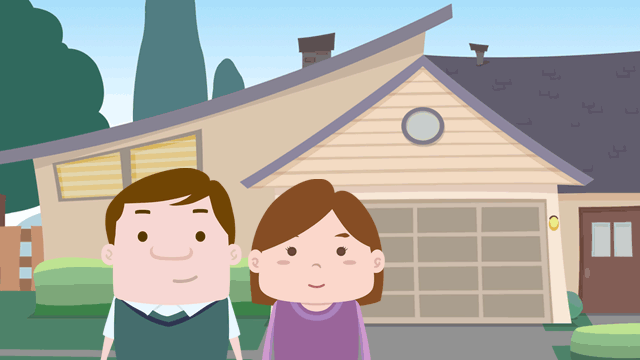Energy Efficient FHA Loans
Incorporate Improvements Into Your Loan

The Energy Efficient Mortgage Loan program helps current or potential homeowners significantly lower their monthly utility bills by enabling them to incorporate the cost of adding energy efficient improvements into their new home or existing housing. This FHA program eliminates the need for homeowners who are interested in making their home more energy efficient to take out an additional mortgage loan to cover the cost of the improvements they intend to make to their property. The program is available as part of a FHA insured home purchase or by refinancing your current mortgage loan.
It is our government's goal to make energy efficiency and conservation a way of life. The FHA Energy Efficient Mortgage Loan program contributes to these efforts by providing better housing and creating a way for homeowners to make valuable improvements to their homes at a relatively low cost. The Joint Center for Housing Studies has reported that by considering the amount of monthly savings on utility bills when determining the amount of the mortgage, over 250 thousand more homeowners could feasibly qualify for a home loan.
HOW IT WORKS
Through this and other types of mortgage insurance programs, the lender helps low and moderate-income families purchase homes by keeping the initial costs down. By serving as an umbrella under which lenders have the confidence to extend loans to those who may not meet conventional loan requirements, FHA mortgage insurance allows individuals to qualify who may have been previously denied for a home loan by conventional underwriting guidelines. It also protects lenders against loan default on mortgages for properties that include manufactured homes, single-family and multifamily properties, and some health-related facilities.
AVAILABLE ASSISTANCE
The Energy Efficient Mortgage Loan program is one of many FHA programs that insures mortgage loans. Borrowers who qualify for FHA's popular Section 203(b) fixed-rate mortgage loan may finance up to 96.5 percent of their home loan. They are also able to fold their closing costs and the up-front mortgage insurance premium into the total cost of the loan. Energy Efficient Mortgages can also be used with FHA Section 203(k) rehabilitation program; in this case the Energy Efficient Mortgage generally follows the Section 203(k) rehabilitation program's financing guidelines.
ELIGIBILITY
The Energy Efficient Mortgage Loan program is available to anyone who meets the income requirements for FHA's Section 203(b) and is able to make the monthly mortgage payments. The cost involved in adding energy efficient features to the home and an estimate of the energy savings must be determined by a home energy rating system or a qualified energy consultant. Up to $200 of the cost of the energy inspection report may be included in the mortgage. Cooperative units are not eligible. Individual condominium units may be insured if they are not in projects that have been approved by FHA or the Department of Veterans Affairs, or they meet certain Fannie Mae guidelines.
ELIGIBLE ENERGY EFFICIENT ACTIVITIES
Energy Efficient Mortgages can be used to make energy-efficient improvements in one- or two-unit existing and new homes. The improvements can be included in a borrower's mortgage only if their total cost is less than the total dollar value of the energy that will be saved during their useful life. The cost of the improvements that may be eligible for financing as part of the mortgage is the lesser of 5 percent of the property's value, 115% of the median area price of a single family dwelling or 150% of the conforming Freddie Mac Limit. View the currentFHA loan limits.

FHA Loan Programs

SEE YOUR CREDIT SCORES From All 3 Bureaus
Do you know what's on your credit report?
Learn what your score means.

FHA Loan Articles and Mortgage News
April 10, 2024 - When CBS News reported that the National Association of Realtors agreed to pay $418 million over roughly four years to resolve all claims against the group by home sellers related to broker commissions, the news sent shockwaves through the real estate industry.
April 9, 2024 - If you have never bought or built a home before, it would be easy to assume there is just one type of loan offered and that it’s just a matter of picking a condo, existing construction, new construction, or deciding to build on your own land.
April 8, 2024 - Do experts think mortgage rates will drop during the spring of 2024? Some say no, but that doesn’t mean house hunters should give up hope. Many hang their hopes on the potential that the Fed will cut interest rates in late spring or early summer.
April 7, 2024 - If the home can’t pass the appraisal or if the home can’t be repaired to pass an appraisal, this could result in the lender denying the loan. The same is true if the home is located too close to high voltage power lines, oil or gas drilling operations, or in certain natural disaster hazard zones.
April 6, 2024 - The FHA reverse mortgage is an option for these qualifying applicants that lets the borrower take cash at closing time on a loan that is not due until the borrower dies, sells the home, or stops using it as the primary residence.





